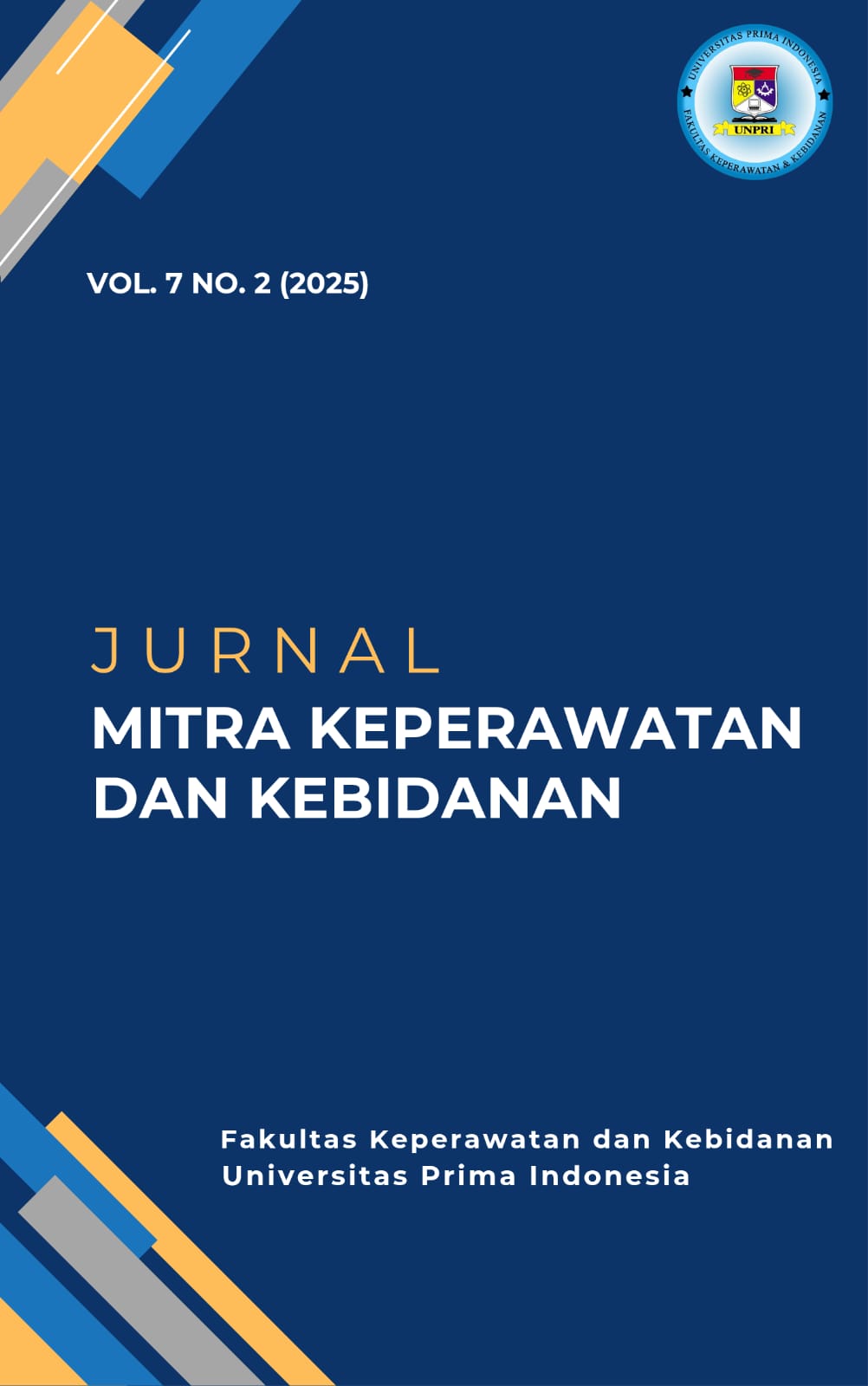Efikasi Diri untuk Meningkatkan Kualitas Hidup Pasien Gagal Ginjal Kronik yang Menjalani Hemodialisis di RSU Royal Prima
##plugins.themes.academic_pro.article.main##
Abstract
Chronic kidney disease (CKD) can affect a diverse population worldwide. Individuals of all ages can experience chronic kidney disease, and both men and women can be involved. Chronic kidney disease (CKD) is a condition characterized by decreased kidney function and kidney damage that develops slowly over a long period of time. To understand self-efficacy to improve the quality of life of chronic kidney disease patients undergoing hemodialysis at RSU Royal Prima Medan. The design of this study was descriptive, involving 57 respondents who had been diagnosed with chronic kidney disease (CKD). The measuring instruments used in the study were the Generalized Self-Efficacy Scale and WHOQOL-BREF questionnaires, with ChiSquare bivariate analysis. The results obtained were a relationship between selfefficacy to improve the quality of life of chronic kidney disease patients with a PValue below 0.05, namely 0.015 with univariate and bivariate data analysis. In the univariate analysis, good quality of life was found in 35 respondents (61.4%), poor quality of life was found in 22 respondents (38.6%). Bivariate analysis of optimism was found in 50 respondents (50.0), pessimism was found in 7 respondents (7.0). The characteristics of the respondents showed that most were in the age range of 46–60 years (42.1%), female (56.1%), and had undergone hemodialysis for 5–6 years (35.1%). The level of patient self-efficacy showed that most respondents had optimistic self-efficacy (87.7%), while a small number were pessimistic (12.3%). The majority of patients' quality of life was in the good category (61.4%), and the rest were in the poor category (38.6%). There was a tendency that higher self-efficacy (optimism) was associated with better quality of life. This shows that patient perception and self-confidence play an important role in improving quality of life during hemodialysis.

